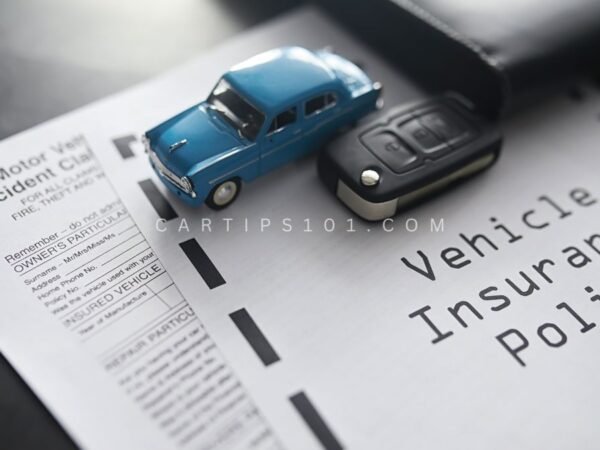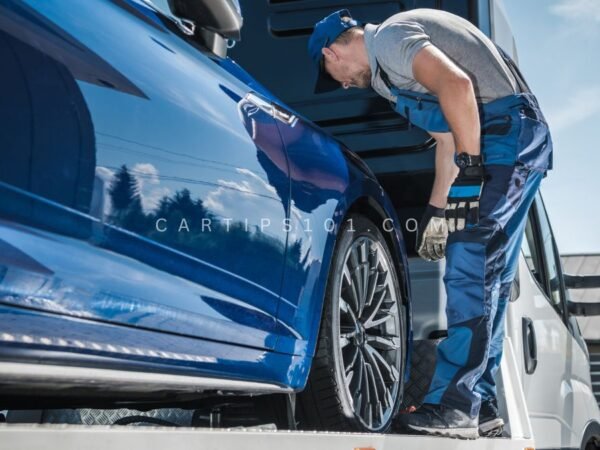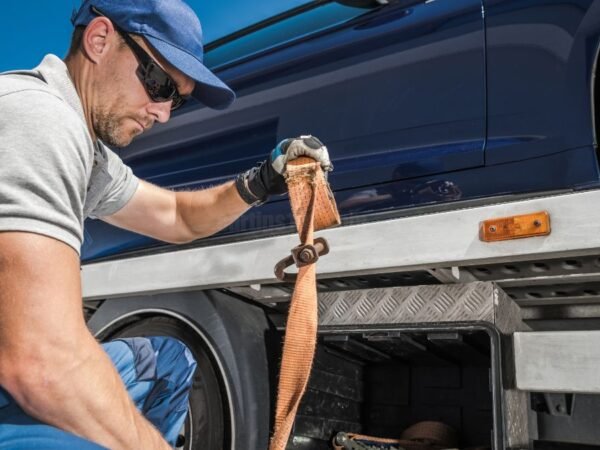When you consider trading in your financed vehicle, it's important to know that you can indeed trade in a car that still has an outstanding loan. In this case, the dealer will take over the loan and pay it off on your behalf. They will also manage the title transfer process for you.
If your car's trade-in value exceeds the remaining loan balance, you will have positive equity, which can be used to lower the cost of your next vehicle. Conversely, if your car is worth less than what you owe, you will encounter negative equity, often referred to as being "upside-down" or "underwater" on your loan.
Here’s a breakdown of the key points regarding trading in a financed car:
| Situation | Description |
|---|---|
| Positive Equity | Trade-in value > Loan balance (reduces cost of new car) |
| Negative Equity | Loan balance > Trade-in value (costly to trade in) |
| Process | Dealer pays off loan and handles title transfer |
To initiate this process, first contact your auto loan lender to request your payoff amount, which is how much you still owe on your loan.
Leasing vs. Buying
Leasing a car offers a different financial structure compared to buying. When you lease, you essentially pay for the depreciation of the vehicle during the lease term, rather than its full value. This typically results in lower monthly payments—drivers can save an average of about $140 a month compared to buying with an auto loan.
Think of leasing a car like renting a home instead of purchasing one. A vehicle lease agreement operates similarly to an installment loan, where you make regular monthly payments. Leasing can also help you build credit, as the dealership or leasing company will report the account to credit bureaus just like an auto loan (Experian).
When deciding between leasing and buying, consider your financial goals, driving habits, and the importance of ownership in your decision-making process. Each option has its advantages and potential drawbacks, so understanding the differences is key to making the best choice for your situation.
Trading in a Financed Car
Trading in a financed vehicle can be a strategic move when considering a lease. Understanding the process, potential fees, and optimal timing will help you make informed decisions.
Process and Considerations
You can trade in a financed car at a dealership without any legal restrictions. Dealerships, banks, credit unions, and auto manufacturers accept vehicles with outstanding loan balances. When trading in, the dealership will pay off your existing loan, and the remaining equity can be applied towards your new lease or vehicle purchase.
Before proceeding, consider the following steps:
- Gather necessary documents, including your loan information and vehicle title.
- Obtain a trade-in appraisal from multiple dealerships to ensure you receive a fair value.
- Verify your loan payoff amount to understand how much equity you have.
Fees Involved
When trading in a financed vehicle, you may encounter several fees that can impact your overall costs. These include:
| Fee Type | Estimated Cost |
|---|---|
| Payoff Processing Fee | $300 - $500 |
| Document/Admin Fees | $495 - $895 |
| Taxes on Trade Value | Varies by location |
| Registration and Titling Costs | Varies by location |
It's essential to be aware of these fees to better understand the financial implications of your trade-in.
Optimal Timing
The best time to trade in a financed vehicle is typically when you have 12-24 months left on your loan term. At this stage, your car still holds decent value, and you have likely paid down a significant portion of the principal balance. This timing helps to avoid negative equity, where you owe more on your loan than your car is worth. Additionally, with a shorter loan term, you minimize interest expenses if you need to pay off the remainder of the loan.
By understanding the process, being aware of potential fees, and timing your trade-in appropriately, you can effectively navigate the transition from a financed car to a lease.
Leasing a Car
Leasing a car can be an attractive option for many drivers. It allows you to enjoy a new vehicle without the long-term commitment associated with purchasing one. Here, we will explore the benefits of leasing, the upfront costs involved, and important considerations regarding mileage.
Benefits of Leasing
Leasing a car offers several advantages. One of the primary benefits is the lower monthly payment compared to financing a car with an auto loan. On average, drivers can save about $140 per month by choosing to lease instead of buy (Bankrate).
Other benefits include:
- Access to new models with the latest technology and features.
- Flexibility to drive a new car every few years.
- Lower repair costs, as most leased vehicles are under warranty.
Upfront Costs
When leasing a car, it is recommended to keep your upfront costs to a minimum. Ideally, you should aim to spend no more than $2,000 upfront. In some cases, it may even make sense to put nothing down and roll all fees into your monthly lease payment. This approach can help you avoid losing money upfront in case of accidents.
Your upfront costs may include:
| Cost Type | Typical Amount |
|---|---|
| First Month's Payment | Varies by lease |
| Security Deposit | Varies by lease |
| Acquisition Fee | $0 - $1,000 |
| Taxes and Registration | Varies by state |
Considerations for Mileage
Leasing contracts often come with mileage limits, typically set at 10,000, 12,000, or 15,000 miles per year. Exceeding these limits can lead to additional charges, which can be up to 30 cents per additional mile (Bankrate).
To avoid unexpected fees:
- Estimate your annual mileage accurately before signing a lease.
- Consider purchasing additional mileage if you anticipate exceeding the limit.
- Keep the car well-maintained to avoid charges for damage beyond normal wear and tear.
By understanding these aspects of leasing, you can make a more informed decision about whether it's the right choice for you.
Managing Equity in Trade-Ins
When considering trading in a financed car, it's essential to understand the concept of equity. This refers to the difference between what you owe on your car loan and the trade-in value of your vehicle. Managing this equity effectively can impact your next financing option, especially if you are contemplating leasing.
Positive Equity
Positive equity occurs when the trade-in value of your vehicle is higher than the remaining balance on your loan. For example, if you owe $5,000 on your car and its trade-in value is $7,000, you have $2,000 in positive equity. This equity can be applied directly to reduce the cost of your next vehicle purchase or lease (NerdWallet).
| Loan Balance | Trade-In Value | Positive Equity |
|---|---|---|
| $5,000 | $7,000 | $2,000 |
Negative Equity
Negative equity, on the other hand, occurs when you owe more on your car than it is worth. In this scenario, the dealer will still pay off your original loan, but you will need to cover the difference, either in cash or by rolling it into your new loan. For example, if you owe $8,000 on your car and its trade-in value is only $6,000, you have $2,000 in negative equity (Experian).
| Loan Balance | Trade-In Value | Negative Equity |
|---|---|---|
| $8,000 | $6,000 | $2,000 |
If you find yourself in a situation with negative equity, consider whether postponing the trade-in until the loan is paid off is a viable option. Alternatively, rolling over negative equity into a new loan may seem convenient but can lead to higher monthly payments and increased overall loan costs (NerdWallet).
Negotiating Trade-In Values
Negotiating trade-in values is crucial for maximizing the equity you can use towards your next vehicle. Both the trade-in value and the price of the new car are negotiable. It is advisable to handle these negotiations separately to ensure you receive a fair deal for both aspects. Before visiting the dealership, utilize a car loan calculator to estimate your potential savings and new monthly payments.
| Trade-In Value | Negotiated Price | Final Trade-In Value |
|---|---|---|
| $6,000 | $25,000 | $6,000 |
Understanding how to manage equity effectively can provide you with more options when trading in your financed car for a lease or another vehicle.
Impact on Credit and Options
Navigating the world of car finance can be complex, especially when considering the impact on your credit. Understanding how trading in a financed car for a lease affects your financial situation is crucial.
Credit Preparation
Before making any decisions, it’s essential to prepare your credit. This preparation involves checking your credit score and understanding how your current car loan impacts it. If you’re considering trading in a financed vehicle, ensure that you communicate with your lender about your options.
If you're struggling with payments, refinancing the auto loan can make your payments more manageable. This approach allows you to keep the car without risking damage to your credit through missed or late payments (FINN).
Trading in vs. Selling
When weighing your options, consider whether to trade in your financed car or sell it outright. Selling the car for an amount that covers your remaining loan balance is advantageous. This way, you can pay off the loan fully, which closes it positively and helps avoid credit damage that can arise from repossession.
Here’s a quick comparison of both options:
| Option | Pros | Cons |
|---|---|---|
| Trading In | Convenient; quick process | May not get full loan payoff |
| Selling | Potential for higher value | Requires more effort; time-consuming |
Minimizing Negative Credit Impact
If you find yourself in a situation where you need to return your financed vehicle, there are strategies to minimize the negative impact on your credit. One option is voluntary repossession, which can be less damaging than defaulting on your loan. Ensure you have an agreement with your lender to make this process smoother.
You should also pay off any deficiency that arises after the car is sold at auction, as this can further help protect your credit score. Remember that a car repossession can negatively impact your score for up to 7 years, signaling risk to future lenders (FINN).
By following these steps, you can better manage your financial situation while transitioning from a financed car to a lease. Whether you choose to trade in or sell, being proactive about your credit will set you up for future success.
Exiting Car Leases
Navigating the process of exiting a car lease can be complex. Understanding the steps involved, your options for buying out a lease, and potential early termination fees is essential for making informed decisions.
Lease Termination Process
When you're ready to end your lease, the first step is to review your lease agreement. Most dealerships require you to return your lease vehicle to the same company where you originally leased it. If you have moved out of state during your lease, you still must return the car to the original leasing company when your lease expires.
The termination process typically involves the following steps:
- Schedule a Return Appointment: Contact your leasing company to schedule a return.
- Prepare the Vehicle: Ensure the car is clean and in good condition.
- Return the Vehicle: Bring the car to the designated location.
- Complete the Inspection: The leasing company will inspect the vehicle for damages and mileage overages.
- Finalize Paperwork: Complete any necessary documentation to finalize the termination.
Buying Out a Lease
If you decide you'd like to keep the vehicle, you can buy out your lease if your lender allows it. The buyout price is usually calculated based on the vehicle's residual value at the end of the lease plus any applicable sales tax.
| Factor | Description |
|---|---|
| Residual Value | The expected value of the car at the end of the lease. |
| Sales Tax | Additional cost based on state regulations. |
| Total Buyout Cost | Residual value + sales tax. |
Some lenders might allow you to extend your lease, but this option is less common and often comes with higher monthly payments compared to your original lease (Car and Driver).
Early Termination Fees
If you wish to exit your lease before the agreed-upon term, be prepared for early termination fees. Unlike a car loan where you can sell or trade in the vehicle, getting out of a lease typically involves hefty penalties.
| Fee Type | Description |
|---|---|
| Early Termination Fee | A penalty for ending the lease early, which varies by lender. |
| Remaining Payments | You may need to pay off the remaining lease payments. |
| Excess Wear and Tear | Additional charges for any damages beyond normal wear. |
Understanding these fees is crucial, as they can significantly impact your finances if you decide to exit your lease early. Always consult your lease agreement and contact your leasing company for specific details regarding your situation.
Final Thoughts
Trading in a financed car for a lease can be a smart move, depending on your financial situation and long-term goals. It's essential to understand the trade-in process, your current loan terms, and the lease agreement's fine print. With careful planning and negotiation, you can transition from a financed vehicle to a lease smoothly, potentially lowering your monthly payments and gaining flexibility. Always consult with financial advisors or dealership experts to ensure that your decision aligns with your financial objectives and lifestyle.
FAQs about "Can You Trade In a Financed Car for a Lease?"
Q: Can I trade in my financed car for a lease even if I owe more than the car's value?
A: Yes, you can trade in a financed car for a lease even if you owe more than the car's current market value, a situation known as being "upside-down" on your loan. However, the difference between what you owe and the car’s value will be added to the cost of the lease, which could increase your monthly payments. It's crucial to understand this before proceeding, as it could impact your overall financial situation.
Q: What are the benefits of trading in a financed car for a lease?
A: The benefits of trading in a financed car for a lease include potentially lower monthly payments, driving a new car with the latest features, and avoiding the hassles of car ownership, such as maintenance and depreciation. Leasing can also provide more flexibility to switch vehicles every few years.
Q: How do I know if trading in my financed car for a lease is the right decision?
A: To determine if trading in your financed car for a lease is right for you, consider your financial goals, how much you drive, and your desire for vehicle ownership versus leasing. If you want lower monthly payments and prefer not to own a car long-term, leasing might be a good fit. Conversely, if you drive a lot or want to build equity in your vehicle, sticking with a financed car might be better.
Q: What should I do to prepare for trading in my financed car for a lease?
A: To prepare for trading in your financed car for a lease:
- Check your car's payoff amount.
- Determine your car's current market value.
- Review your credit score to understand lease eligibility.
- Research lease deals from various dealerships.
- Prepare necessary documents such as the car’s title, loan payoff statement, and identification.
Q: Are there any fees associated with trading in a financed car for a lease?
A: Yes, there can be fees associated with trading in a financed car for a lease. These may include early termination fees from your current loan, lease acquisition fees, and potential charges if your car’s value is less than what you owe (negative equity). Always review the terms carefully and ask the dealership to explain any fees before proceeding.
Q: Can I negotiate the terms when trading in a financed car for a lease?
A: Absolutely! You can negotiate the trade-in value of your financed car, the lease terms, and even some fees. Being well-informed and understanding your car’s value and the lease market can give you leverage. It’s also helpful to shop around and get quotes from multiple dealerships.
Image Source: Paid image from CANVA





